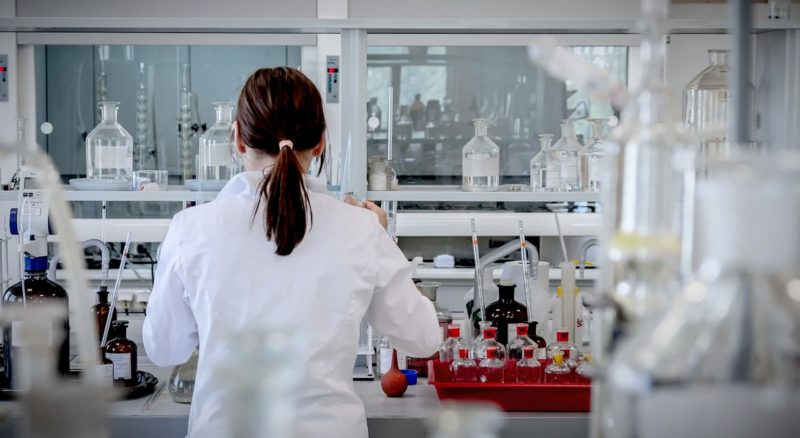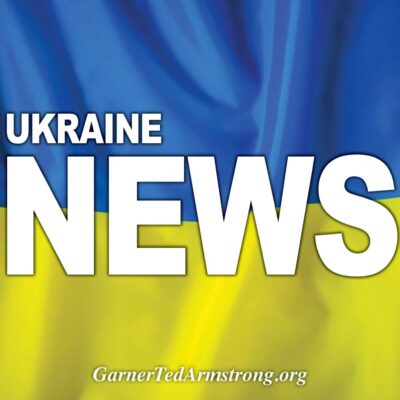
An international group of scientists called for a new investigation into the origins of COVID-19 over fears the current probe is compromised by the Chinese Communist Party.
“We wish to raise public awareness of the fact that half of the joint team convened under that process is made of Chinese citizens whose scientific independence may be limited, that international members of the joint team had to rely on information the Chinese authorities chose to share with them, and that any joint team report must be approved by both the Chinese and international members of the joint team,” the open letter published in The Wall Street Journal reads.
The letter also follows National Pulse reporting exposing American and French World Health Organization (WHO) having potential conflicts of interest with the Chinese government.
“We have therefore reached the conclusion that the joint team did not have the mandate, the independence, or the necessary accesses to carry out a full and unrestricted investigation into all the relevant SARS-CoV-2 origin hypotheses — whether natural spillover or laboratory/research-related incident,” the letter adds.
OPEN LETTER
Call for a Full and UnrestrictedInternational Forensic Investigation into the origins of COVID-19
March 4, 2021
1. Introduction
Finding the origins of SARS-CoV-2 is critically important to both better addressing the current pandemic and reducing the risks of future ones. Unfortunately, well over a year after the initial outbreak, the origins of the pandemic remain unknown.
As scientists, social scientists, and science communicators who have been independently and collectively looking into the origins of the COVID-19 pandemic, we believe it essential that all hypotheses about the origins of the pandemic are thoroughly examined and full access to all necessary resources be provided without regard to political or other sensitivities.
Based on our analysis, and as confirmed by the global study convened by the World HealthOrganization (WHO) and Chinese authorities, there is as yet no evidence demonstrating a fully natural origin of this virus. The zoonosis hypothesis, largely based on patterns of previous zoonosis events, is only one of a number of possible SARS-CoV-2 origins, alongside there search-related accident hypothesis.
Although the “collaborative” process of discovery mandated by the World Health Assembly in May 2020 was meant to enable a full examination of the origins of the pandemic, we believe that structural limitations built into this endeavor make it all but impossible for the WHO-convened mission to realize this aspiration.
In particular, we wish to raise public awareness of the fact that half of the joint team convened under that process is made of Chinese citizens whose scientific independence may be limited, that international members of the joint team had to rely on information the Chinese authorities chose to share with them, and that any joint team report must be approved by both the Chinese and international members of the joint team.
We have therefore reached the conclusion that the joint team did not have the mandate, the independence, or the necessary accesses to carry out a full and unrestricted investigation into all the relevant SARS-CoV-2 origin hypotheses – whether natural spillover or laboratory/research-related incident.
We are also concerned that the joint team’s work has been inaccurately reported by the media as an independent investigation whose conclusions reflect those of the WHO. The February 9, 2021 Wuhan joint press conference was a good example of this misunderstanding. Although the findings were those of the joint team, they were widely reported as representing the WHO itself.
As strong supporters of the WHO and its mission, we believe it must be made clear that any findings of the joint committee, while potentially useful to a limited extent, represent neither the official position of the WHO nor the result of an unrestricted, independent investigation. For this reason, we believe it is essential that the contours of a full and unrestricted investigation be outlined to set a standard against which current and future efforts can be evaluated.
2. Limitations of the WHO-convened global study
The following core problems undermine the existing WHO-convened joint study:
• The Terms of Reference, which govern the exact objectives, duties, and responsibilities of the joint-investigation, were negotiated without sufficient transparency (July 2020), and then made public after the considerable delay (November 2020).
• These Terms of Reference were significantly limited, for instance by stipulating that most of the fieldwork had to be conducted by the Chinese side with the results simply communicated to the international members of the joint team for review and discussion, in a format chosen by the Chinese side.
• The intermediate and final reports of the joint study rely on a consensus among the 17Chinese members and 17 international members of the joint team. It is likely, therefore, that reports resulting from this process will ultimately represent a necessary compromise based partly on political and other limitations.
• The selection process of international experts on the team did not adequately screen for conflicts of interest.
• The skills represented in the team are purely focused on public health and zoonosis at the detriment of forensic skills suitable for investigating a laboratory or research-related accident.
• The team did not have the mandate or access to granular lab records, data, and personnel to an extent that would allow them to confidently evaluate the various hypotheses.
• The team operated in the context of abroad Chinese State Council gag order which prevented any spontaneous sharing of any information about the pandemic, and which coordinated the careful release of any such information with the Chinese government. That gag order was put in place a week after the departure of the Feb 2020 WHO joint mission from China.
• The international members of the joint team, by their own admission, have often relied on verbal assurances given to them by their Chinese counterparts rather than independent investigation, particularly regarding the possibility of a lab or research-related accident.
• At least one international team member had expressed a strong conviction towards the pure zoonosis hypothesis before joining the investigation – when hardly any data about the SARS-CoV-2 virus were available – and was dismissive of the lab-related origins. These public statements cast serious doubts as to his scientific objectivity.
3. What a full investigation should look like
Because the joint team investigation falls short of the mark, we believe it essential for the international community to outline how a full and unrestricted investigation could be organized. Such an investigation would need to:
• Be carried out by a truly independent team with no unresolved conflicts of interest and no full or partial control by any specific agenda or country.
• Be multidisciplinary by including epidemiologists, virologists, wildlife experts, public health specialists, forensic investigators, biosafety and biosecurity experts, etc.
• Include several individuals with Chinese-language skills and with an understanding of Chinese culture, who can help to interpret behaviors during the original events and also help decode the dynamic during the investigation itself.
• Start its study by considering all possible scenarios for each pathway. These should include:
o A pure zoonosis event with/without an intermediate host;
o Infection at a sampling site of a lab employee or of some accompanying non-lab personnel;
o Infection during transport of collected animals and/or samples;
o Lab Acquired Infection (LAI) in one of the laboratories in Wuhan;
o Lab-escape without LAI, for instance via waste handling or animals that escaped or were disposed of inappropriately.
• Follow a common forensic investigation approach, based on:
o Traditional rigorous on-the-ground investigation;
o Desk-based analyst work to make sense of the elements collected;
o Open-source intelligence to help gather additional information;
o A review of previous zoonosis events and lab-related accidents, from which technical and institutional insights may be gained.
• Have full or significant access to all sites, records, samples, and personnel of interest, including:
o Key Wuhan markets;
o All laboratories and institutions, Chinese or international, known to have worked on coronaviruses or shared facilities or equipment with groups that worked on coronaviruses;
o Hospital records from fall 2019 of early or suspect patients, including interviews with patients or contacts;
o Important pathogen sampling sites, such as the Mojiang mine;
o Current and past personnel, such as employees of the labs in 2019 and people present on specific sampling sites.
• Have full access to all relevant records of the labs and institutions involved in coronavirus research, including:
o Environmental reports;
o Inspection reports;
o Maintenance logs;
o Lab experiment logs;
o Raw sequence reads;
o Records of shipments of samples;
o Specimen destruction records;
o Personnel logs;
o Incident reports;
o Animal breeding records;
o Sampling trip records, including the 2013 Mojiang sampling trip;
o Key databases of pathogens, samples, and isolates, including those taken offline.
• Have full access to granular data, preferably directly from the source and in its raw form, not summarized data. This data can be anonymized if necessary; there should be no legal reason to limit access.
• Have full access to market samples, environmental samples, hospital samples, and any potential samples such as wastewaters and blood banks with full permission to perform independent sequencing or other testing.
• Have full access to the Chinese CDC case records and related primary hospital and/or clinic records.
• Have full access to other Chinese case databases describing pneumonia cases.
• Be able to conduct confidential interviews, including of early cases and their relatives and past and present personnel associated with the sites or institutions of interest such as markets, hospitals, sampling sites, and laboratories.
• Deploy a secure reporting channel for people to confidentially contribute information, wherever they are based, without fear of punishment or retribution.
4. Conclusion and Next Steps
We recognize that as an international agency that must rely on the collaboration of its member states, the World Health Organization is limited in what it can achieve in this type of investigation. It is not our intention to undermine the WHO, which is working under challenging circumstances at a time of tremendous global need.
Although the joint team investigation was a significant opportunity for the international community to gain some limited and highly curated information, it has unfortunately proven opaque and restrictive, greatly compromising the scientific validity of the investigation. With more than two million deaths, more than a hundred million infected by COVID-19 worldwide,
and a massive global disruption impacting some of the world’s most vulnerable populations, we
cannot afford an investigation into the origins of the pandemic that is anything less than absolutely thorough and credible. If we fail to fully and courageously examine the origins of this pandemic, we risk being unprepared for a potentially worse pandemic in the future.
Because we believe the joint team process and efforts to date do not constitute a thorough, credible, and transparent investigation, we call on the international community to put in place a structure and process that does.
Signatories:
• Colin D Butler, Honorary Professor, National Centre for Epidemiology and population health, Australian National University, Canberra, Australia (ORCID 0000-0002-2942-5294)
• Bruno Canard, DR CNRS, molecular virologist, Aix Marseille University, France, (ORCID
0000-0003-4924-1991)
• Henri Cap, PhD, zoologist, Museum of Natural History, Toulouse, France
• Y. A. Chan, Postdoctoral Fellow, Broad Institute of MIT & Harvard, Cambridge, USA(ORCID 0000-0002-0731-637X).
• Jean-Michel Claverie, Emeritus Professor of Medicine, virologist, Aix-MarseilleUniversity, France, ( ORCID 0000-0003-1424-0315)
• Fabien Colombo, PhD Candidate, Communication and sociology of science, MICA,Université Bordeaux Montaigne, France.
• Virginie Courtier, Evolutionary geneticist, Institut Jacques Monod, CNRS, France (ORCID 0000-0002-9297-9230).
• Francisco A. de Ribera, Industrial Engineer, MBA, MSc(Res), Data scientist, Madrid, Spain (ORCID 0000-0003-4419-636X)
• Etienne Decroly, DR CNRS, molecular virologist, Aix Marseille University, France,(ORCID 0000-0002-6046-024X)
• Rodolphe de Maistre, MSc engineering, MBA, ex auditor IHEDN, France (ORCID 0000-0002-3433-2420)
• Gilles Demaneuf, Engineering (ECP), Data Scientist at BNZ, Auckland, NZ, (ORCID:0000-0001-7277-9533) (Co-Organizer)
• Richard H. Ebright, Professor of Chemistry and Chemical Biology, Rutgers University, USA
• André Goffinet, MD, PhD, Emeritus Professor, University of Louvain Med Sch, Belgium
• François Graner, biophysicist, Research Director, CNRS and Université de Paris,France, (ORCID 0000-0002-4766-3579)
• José Halloy, Professor of Physics, Biophysics and Sustainability, Université de Paris, France, (ORCID0000-0003-1555-2484)
• Milton Leitenberg, Senior Research Associate, School of Public Affairs, University of Maryland, USA
• Filippa Lentzos, Senior Lecturer in Science & International Security, King’s College London, United Kingdom (ORCID 0000-0001-6427-4025)
• Rosemary McFarlane, PhD BVSc, Assistant Professor of Public Health, University of Canberra, Australia (ORCID 0000-0001-8859-3776)
• Jamie Metzl, Senior Fellow, Atlantic Council, USA (Co-Organizer)
• Morell, Biologist, DR CNRS and Museum of Natural History, Toulouse, France
• Nikolai Petrovsky, Professor of Medicine, College of Medicine and Public Health, Flinders University, Australia
• Steven Quay, MD, PhD, Formerly Asst. Professor, Department of Pathology, StanfordUniversity School of Medicine, USA (ORCID 0000-0002-0363-7651)
• Monali C. Rahalkar, Scientist ‘D’, Agharkar Research Institute, Pune, India
• Rossana Segreto, PhD, Department of Microbiology, University of Innsbruck, Austria(ORCID 0000-0002-2566-7042)
• Günter Theißen, Dr. rer. nat., Professor of Genetics, Matthias Schleiden Institute,Friedrich Schiller University Jena, Germany, (ORCID 0000-0003-4854-8692)
• Jacques van Helden, Professor of bioinformatics, Aix-Marseille University, France,(ORCID 0000-0002-8799-8584)
Source: https://thenationalpulse.com/breaking/scientists-demand-new-covid-probe/
[Disclaimer]








